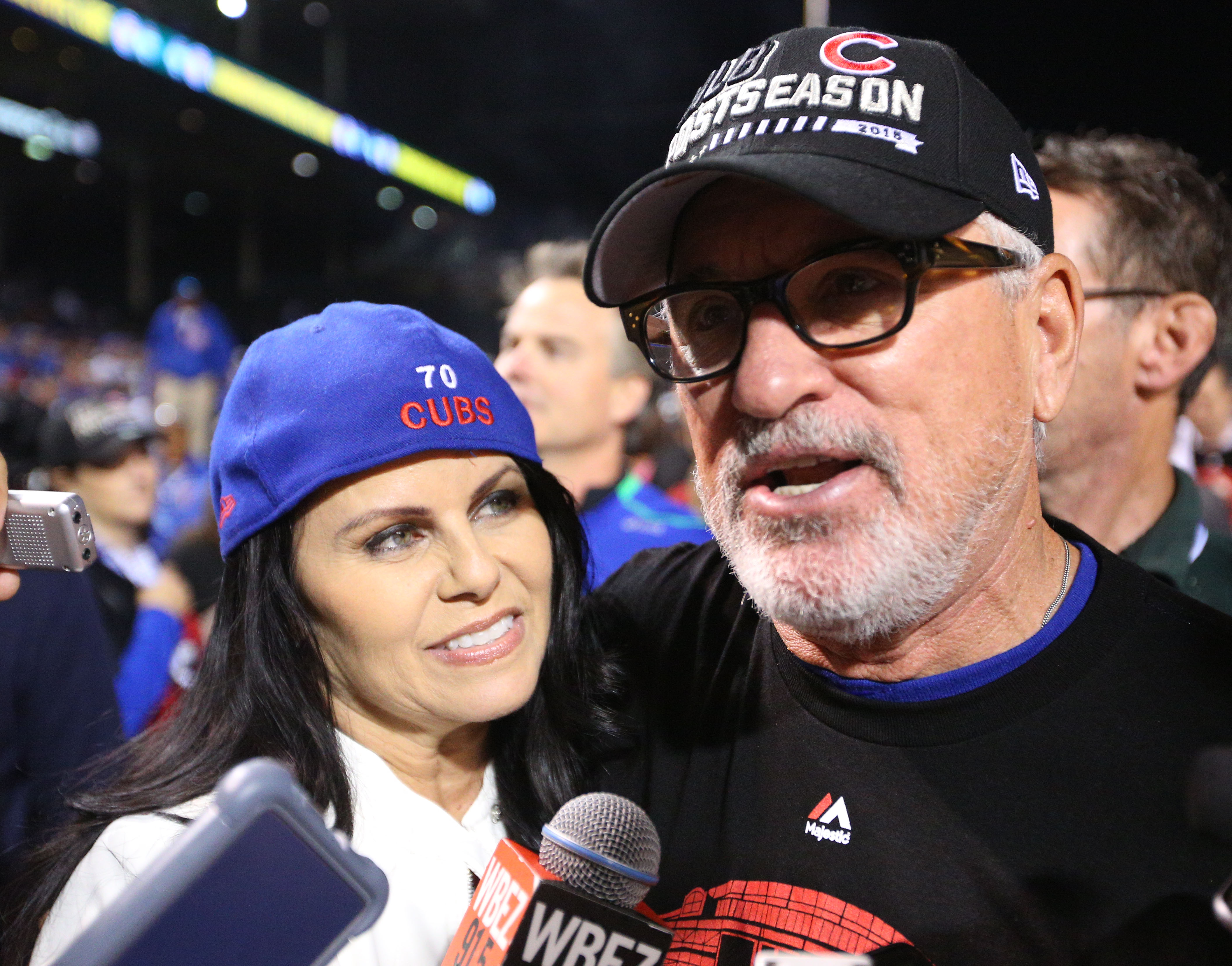Position: Manager
2015 Stats: 97-65; Best Onesie Party Ever
Some people don’t like to give managers credit for anything a baseball team accomplishes during the season. It’s the players, the argument goes, that step onto the field and determine whether a team wins or loses on any given day. The manager simply decides who plays where and then watches it all unfold. And that’s true—I don’t have any stats to analyze how good Maddon was in 2015 (other than the 97 wins his team racked up). So instead, I want to explore his performance through the lens of how he managed change in 2015. Change is hard—especially for athletes that rely on routines and repetition to get themselves ready to perform. So helping them deal with change is a big part of a manager’s job.
Maddon dealt with a lot of change during his Cubs debut season. As I’ve previously written, here are some of the issues that could’ve blown up in Maddon’s face:
- He pulled Rondon from the closer’s role in favor of Jason Motte, then changed back to Rondon when Motte began to falter and Rondon had built his confidence back up.
- He benched his young, cost-controlled shortstop (Starlin Castro, in case it isn’t clear) when he struggled and replaced him with a rookie. And he remarkably managed to do so without having anyone grumble in the process.
- He took Travis Wood out of the rotation and dropped him into the ‘pen, where he’s thrived, posting a 2.95 ERA and 30.2 percent strikeout rate.
- He managed having three catchers on the roster for longer than anyone thought possible.
- He found enough at-bats for a rookie outfielder/catcher/designated hitter—yes, that’s Kyle Schwarber—for him to prove he belongs on the team.
For a new manager to navigate through all this change without players popping off to the press or through their agents is a damn-near miracle. If Maddon can lead a club through all those issues while winning 97 games, he should get the benefit of the doubt when it comes to his people-management skills.
Let’s go back to that initial argument some people make about managers and how they don’t actually contribute because they don’t play in any games. While that’s true (that they don’t play in games), a certain type of manager can have a profound impact on the roster construction and overall future of a team.
Ben Zobrist was a desirable free agent this offseason, and that usually means whoever offers the biggest contract gets the player. But in this case, the Cubs had an ace up their sleeve. Here’s Zobrist listing the reasons why he signed (for less money) with the Cubs: “I wanted to play for this team, wanted to play for Joe Maddon again, and I want to win a championship as a Chicago Cub.”
Then there’s the Jason Heyward signing. The Cubs managed to get the best position player on the free-agent market for less money than other teams were offering. Sure, the opt outs were part of it, but Heyward called playing for Maddon “the icing on the cake.”
I couldn’t find any direct evidence of Maddon influencing the Jon Lester signing, but it’s fair to say Lester wouldn’t have come running to play for Rick Renteria (no offense).
Maddon may not be able to hit home runs and strike hitters out, but he’s directly responsible for putting two of the top free agents available on the field for less money. He helped the Cubs add top talent and he saved the Cubs money. And besides, the man is plain cool.
Allow me a second to stop gushing about Joe Maddon to point out one minor issue I did have with the job he did last season: his performance in the playoffs. The Cubs lost to the Mets (which, in general, was not his fault) and I found myself wondering out loud why Maddon wasn’t coming out of the dugout to complain to the home-plate umpire during Game 3 of the NLCS.
The Cubs seemed to be getting unfairly squeezed (no, that claim’s not totally unfounded) and although Maddon was caught glaring from the dugout every now and then he didn’t come out once. And for anyone that knows or watches Maddon regularly, you know that he loves to talk. If anything even slightly out of the ordinary happens, Maddon is usually out of the dugout to have a chat about it. But where was Maddon during that game? It’s a minor nit, but that moment stuck with me after the Cubs eventually lost the series.
Maddon has proven he’s an effective manager that’s adept at navigating all kinds of change over the course of a Major League season and still winning 97 games in the bargain. He’s also helped establish his club as a premium destination for free agents (and saved the front office a sizable amount of cash in the process). That was all in his first season with a bunch of young, new players (which won’t be the case in 2016).
No pressure, Joe, but I can’t wait to see what he can do with a full season under his belt.
Lead photo courtesy Dennis Wierzbicki—USA Today Sports.
